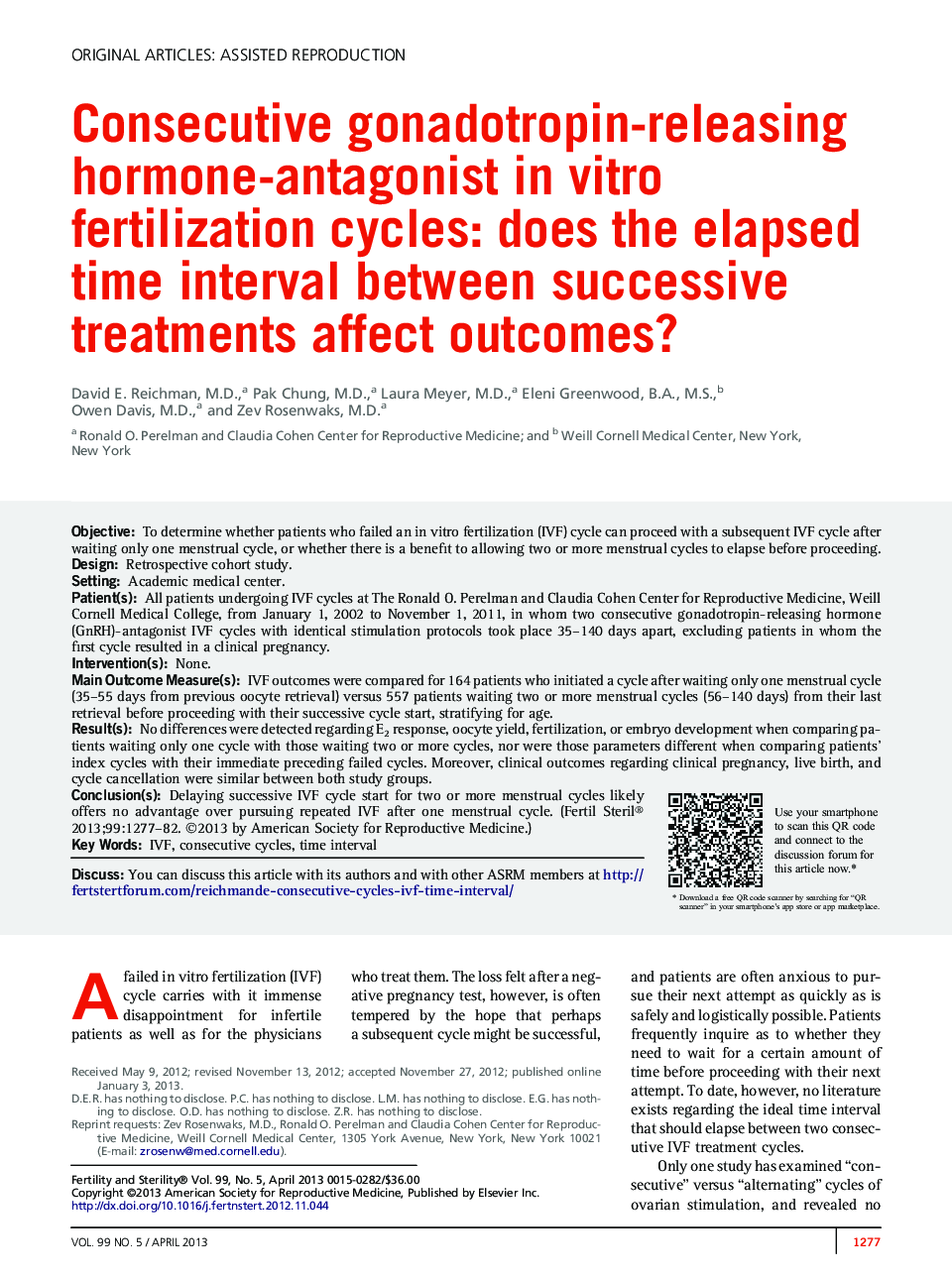| Article ID | Journal | Published Year | Pages | File Type |
|---|---|---|---|---|
| 3939025 | Fertility and Sterility | 2013 | 6 Pages |
ObjectiveTo determine whether patients who failed an in vitro fertilization (IVF) cycle can proceed with a subsequent IVF cycle after waiting only one menstrual cycle, or whether there is a benefit to allowing two or more menstrual cycles to elapse before proceeding.DesignRetrospective cohort study.SettingAcademic medical center.Patient(s)All patients undergoing IVF cycles at The Ronald O. Perelman and Claudia Cohen Center for Reproductive Medicine, Weill Cornell Medical College, from January 1, 2002 to November 1, 2011, in whom two consecutive gonadotropin-releasing hormone (GnRH)-antagonist IVF cycles with identical stimulation protocols took place 35–140 days apart, excluding patients in whom the first cycle resulted in a clinical pregnancy.Intervention(s)None.Main Outcome Measure(s)IVF outcomes were compared for 164 patients who initiated a cycle after waiting only one menstrual cycle (35–55 days from previous oocyte retrieval) versus 557 patients waiting two or more menstrual cycles (56–140 days) from their last retrieval before proceeding with their successive cycle start, stratifying for age.Result(s)No differences were detected regarding E2 response, oocyte yield, fertilization, or embryo development when comparing patients waiting only one cycle with those waiting two or more cycles, nor were those parameters different when comparing patients' index cycles with their immediate preceding failed cycles. Moreover, clinical outcomes regarding clinical pregnancy, live birth, and cycle cancellation were similar between both study groups.Conclusion(s)Delaying successive IVF cycle start for two or more menstrual cycles likely offers no advantage over pursuing repeated IVF after one menstrual cycle.
